
Live Longer by Using These 6 Best Cooking Oils!
As you step inside a department store, you’ll find various cooking oils labelled with different terms: saturated fats, unsaturated fats, refined, filtered, rice-bran oil, vanaspati, etc. We bet you feel very confused. Nowadays, so many cooking oils are available that buying the best healthy cooking oil for seniors can prove challenging, especially when you realize that 129,328 deaths were documented for consuming unhealthy cooking oils! Oils serve different purposes – for health, taste and cooking. To stay healthy, our bodies need a variety of healthy fats found naturally in different oils. So, you need to know which are best for baking, sautéing, and frying and which are the best and most beneficial cooking oils for the elderly.
As we age, it becomes more vital to watch what we eat. Since most meals include oil, it is essential to learn which one is the healthiest. When choosing cooking oils for seniors, look for those that are low in bad fats and do not cause serious health problems. However, finding such cooking oil is easier said than done. We know that this is a big issue and concern for many seniors. Thus, we have listed the 6 best cooking oils that proved to be safe and healthy for seniors.
Contents
The Best Cooking Oils
The truth is not all cooking oils are created equal, and knowing the basics will put you ahead of the game. Oils are classified according to different characteristics. In evaluating oils, we consider the amount of essential fatty acids, unsaturated fats, the ratio of unsaturated fats to saturated fats, the effect of oils on blood cholesterol, the taste of oils, the impact of processing methods on the nutritional value of oils, and the presence of pesticides in them. Depending on its characteristics, nutrient composition, and flavor, the oil you choose can enhance or completely ruin your cooking and dishes. Here is the list of some cooking oils considered the bests in 2023.
Flaxseed Oil
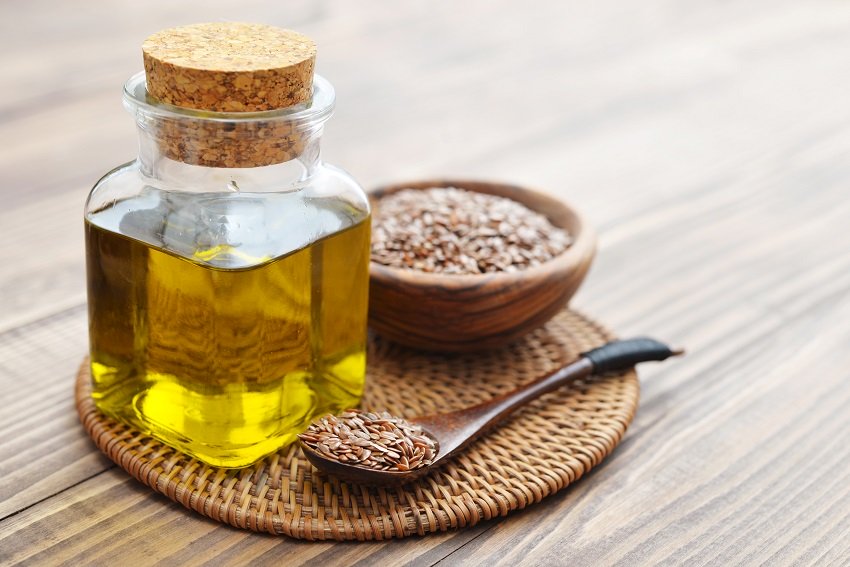
Flaxseed oil is one of the best oils for the elderly. It is a rich source of omega-3 fatty acids. Omega-3 prevents many diseases, including cardiovascular disease, and strengthens the immune system of the elderly.
Flaxseed oil is not suitable for cooking and loses its properties with heat. Therefore, You can only use flaxseed oil in salads. It is good to know that flaxseed oil promotes skin health and increases immunity.
Read More: 5 Nutritious Soup Recipes for Seniors
Canola Oil
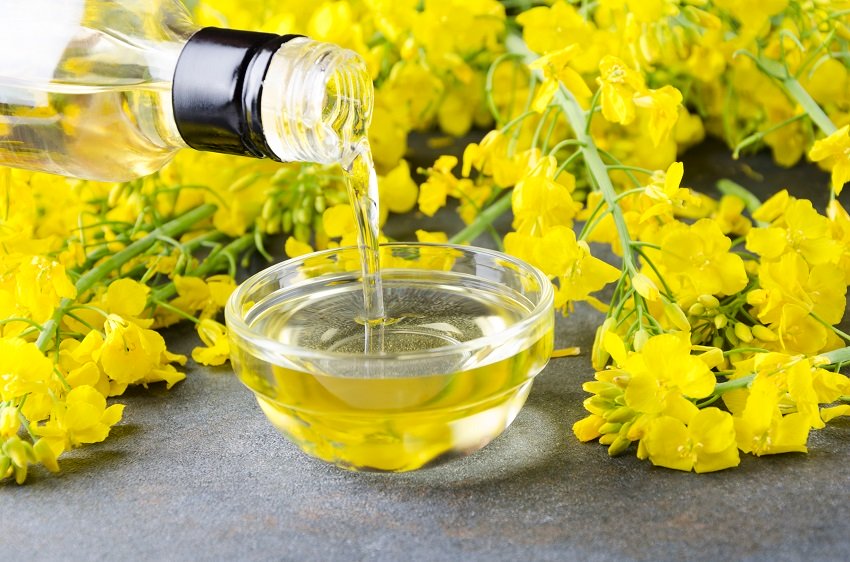
Canola oil is another of the oils suitable for the elderly. This oil is light and yellow and has no particular taste. Canola oil is also an essential source of omega-3 and omega-6 fatty acids. Since canola oil is low in saturated fats, it is perfect for heart health. An exciting feature of this oil is that it does not increase cholesterol and reduces the risk of cardiovascular disease.
However, some research has shown that canola oil is not as good as olive oil and soybean oil and is low in nutrients. The important thing is that canola oil has a lot of energy, so be sure to consult your doctor before adding it to your diet.
Soybean Oil
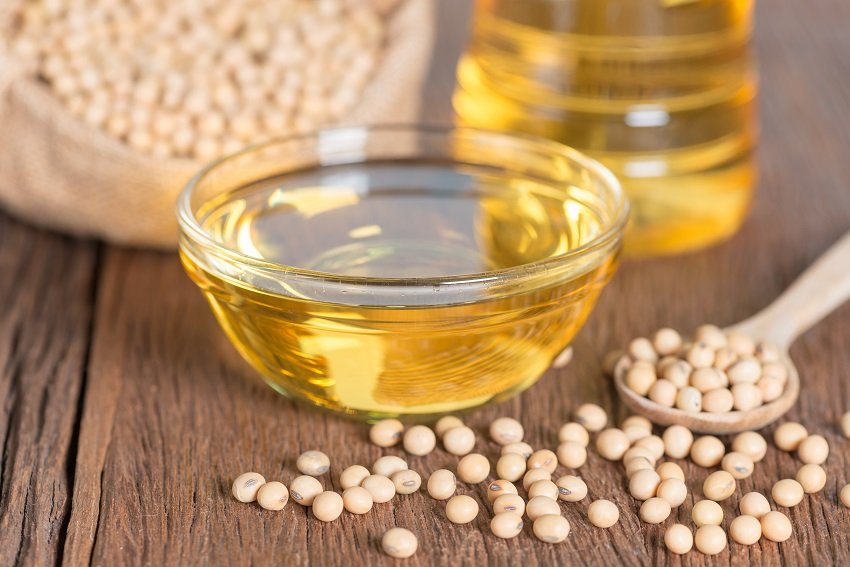
Soybean oil is a vegetable oil extracted from soybean seeds, and it is a good choice for the elderly. It is one of the best oils for healthy eating, and it is a good source of fatty acids and minerals. This oil is high in glycerin and is perfect for cooking and salads. Furthermore, it is rich in antioxidants, which stave off most cancers. Soybean oil strengthens the immune system and helps keep skin and hair healthy. Soybean oil has a unique property that reduces the risk of Alzheimer’s disease.
Read More: Best Foods to Prevent Cancer in Old Age
The elderly can prevent this disease by consuming soybean oil. Soybean oil also helps improve nerve function. Soybean oil is also recommended for the vegetarian elderly. Since vegetarians cannot eat meat, they can add soy and soybean oil to their diet. Soybean oil is also suitable for eye health and prevents cataracts, glaucoma, and reduced retinal function.
These oils contain carbohydrates, fiber, vitamin E, fatty acids, and the amino acid lysine and maintain heart health, making them a perfect choice for the elderly. Many older people at risk for osteoporosis can prevent osteoporosis by consuming soybean oil. The estrogen in soybean oil strengthens bones and prevents osteoporosis. Soybean oil also helps prevent diabetes in seniors.
Olive Oil
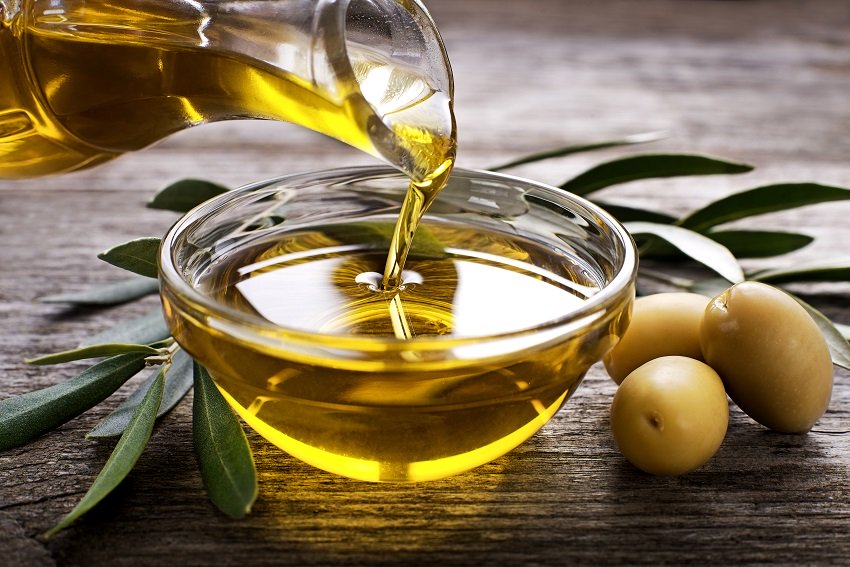
Olive oil is one of the most widely used and best oils used in various foods and salads. This oil has monounsaturated fat and is rich in vitamins and minerals; hence it is one of the best oils for the elderly. The best way to cook olive oil is to use it in salads and cook food. Combine olive oil with lemon juice and pour over salad. Olive oil is also a source of omega-3. So the elderly who are vegetarians and cannot use fish and fish oil pills can add olive oil to their diet.
Never use olive oil for frying food, as it loses its nutritional value. The smoke point of olive oil is 185 to 210 degrees Celsius. It is no longer helpful if it heats up and smokes more than those degrees. You can also use olive oil for cooking rice. It both changes the aroma of rice and does not raise blood cholesterol. You can also add olive oil to omelets and olive salads.
Peanut Oil
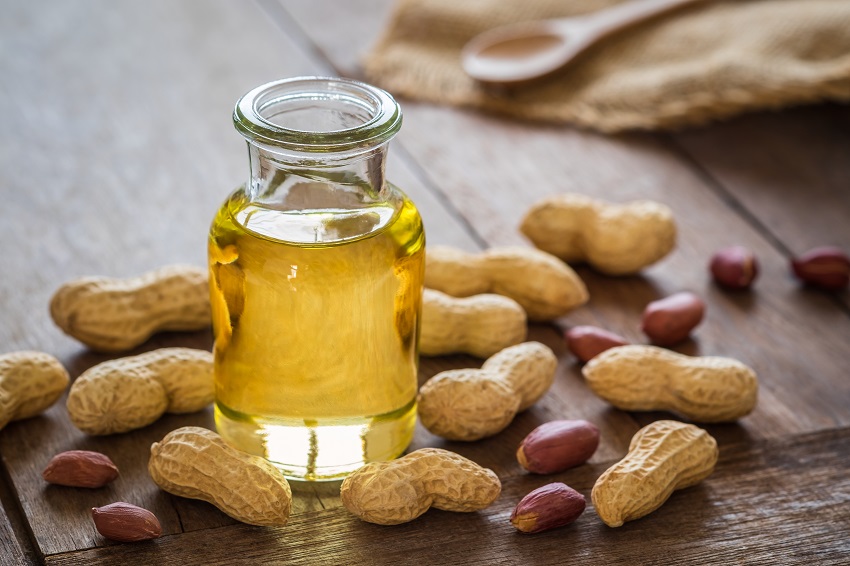
Peanut Oil is considered one of the healthiest oils for the elderly. It is the best cooking oil for roasting and pan-frying foods at a high temperature. The best thing about peanut oil is its high smoke point and can handle the blazing temps. Peanut oil contains phytosterol, which reduces your risk of heart disease.
Sesame Oil
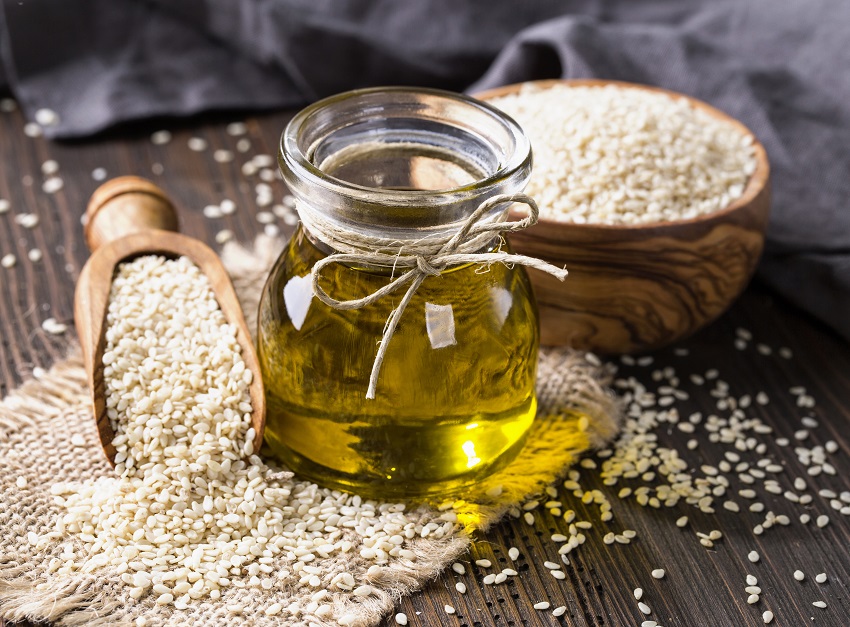
Sesame oil has also gained popularity recently, and many people use sesame oil in salads and pasta. The minerals in this oil are magnesium, copper, iron, and calcium. Because sesame oil is darker in color, it is rich in antioxidants. It lowers blood pressure, stress, and depression. Some seniors use sesame oil to prevent diabetes.
This oil lowers blood glucose levels, which is also suitable for diabetes. Sesame oil also helps prevent and treat joint stiffness and osteoporosis. This oil also prevents several conditions, including:
- Alzheimer’s disease
- Joint disease and osteoarthritis
- Cataracts
- Clogged arteries
- Parkinson’s disease
Sesame oil also has many calories and energy, so you should not consume it too much.
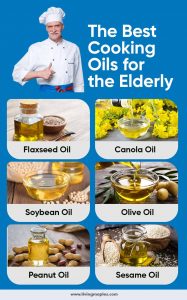
Final Words
This article talked about the best cooking oil for the elderly. For this purpose, we identified and introduced the types of valuable and nutritious oils. The point is that you should pay attention to when consuming oils is their balanced consumption. If you overuse any of the oils listed in this article, you will gain weight and face other diseases. It is best to consult a doctor to add these oils to your diet.
Read More:
Do you think using sesame oil makes food taste bitter? I used to cook my meals with olive oil. Recently I’ve switched to sesame oil, but some meals still don’t taste as good as before.
I usually use sesame oil for salad dressings or with vegetables. I think it tastes burnt and bitter when you heat it.
I love olive oil; it’s tasty, smells terrific and has a unique softness. It’s even an excellent option for skin and hair care. But honestly, I had no idea it’s not suitable for frying; I always cook with olive oil.
Wow, I never even knew you could get oil from soybeans. There’s something new I have to try. Also, great list. Thank you for this.
My mother used to cook almost everything with olive oil, and I guess I inherited this habit from her, in fact. I think every oil I use is plant-based. I don’t even remember the last time I ate something cooked or fried with oils made from animals fat.
My comment may bother many people here, but I say “oil” and “health” do not go together. Whatever the type, it is not healthy.
Oil consumption has risen much higher in the past 40 years, especially with the advent of refined oil, packed oils and the green revolution.
I hear people saying, “I don’t eat banana or cashew etc, because it contains a lot of fat.” OK, fine. What is your justification for oil?!!
Whether single cashew has fat or not is irrelevant,
but Oil = Fat.
Yes, only fat and nothing else.
No carbs, no protein, no fibre…
Well, based on my own experience, the best oil for most high-temperature cooking is coconut. The second would be avocado.
Those oils are not damaged by high heat, a process that changes the chemical to create fats that promote poor health.
But maybe I’m being a little too green here.
My dad used to say eat anything made from cooking oil two times a day….BUT work hard for the rest of the day. Then all cooking oils are fine…
Poison is fine, and so is Snake Venom, but how much and where you use it makes sense.
It depends on how you cook. Current understanding of oils and their smoke points shows us different uses for different oils.
But in my opinion, Virgin olive oil is the healthiest choice for cooking. However, it is expensive compared to any other food oil.
Olive oil is very good for health and doesn’t harm the body.
We have olive, coconut, and usually soy or canola in my house. Also used from time to time is tallow, butter, etc. They all have different use and are fitted to different needs.
Eat well, live better!
One should not stick to any particular cooking oil but use different variants…
And forget all the technical terms related to oils and fats, like saturated-unsaturated, mono-poly etc.
You’ll read and forget about it the next day. I know I do!
Here is how and what to remember: any fatty stuff which solidifies at room temperature is bad for health. This includes cheese, butter, mayo, vanaspati ghee, coconut oil, desi ghee…
So, better to avoid them.
Use Canola, soybean, corn, olive etc.